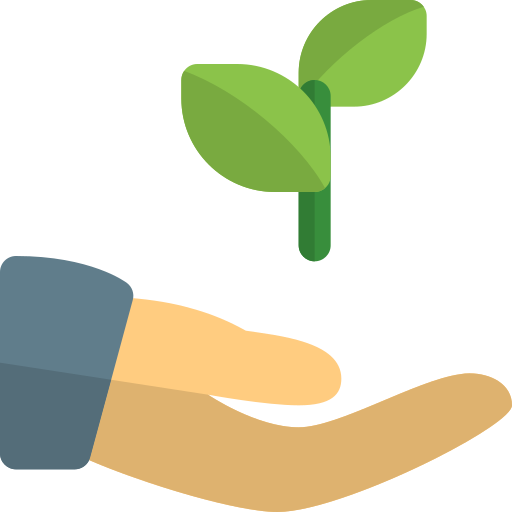Financial Help for Stroke Victims
NDIS for people who have experienced stroke
If you or a loved one have experienced a stroke, not only can it be life changing, affecting health and independence but also creating financial challenges. The need for financial help for stroke victims becomes crucial, as navigating the costs of medical care, rehabilitation, and daily support can feel overwhelming.
Financial help for stroke survivors can be accessed through programs like the NDIS for support services, Disability Support Pension, Carer Payment, and Medicare. Additional assistance includes insurance benefits, community support from charities and employment services, all aimed at reducing medical, living and rehabilitation costs.
Understanding the resources available to you and being able to utilise them effectively can make a significant difference in your recovery journey. At Maple, we are here to help you explore financial assistance for stroke survivors available to ensure you or your loved one receives the care and support you need.
What effects can a Stroke have on day-to-day life?
Experiencing a stroke can bring many changes to day-to-day life. Of course, everyone’s journey will be unique, but here are some of the common challenges that stroke survivors may face:
Physical Changes
You may find that moving around and staying active is more challenging now. Tasks like walking, dressing, or reaching might require more effort, especially with weakness or paralysis on one side. Fatigue can make even simple activities exhausting. Eating and drinking may also be difficult due to swallowing issues, making mealtimes less enjoyable and affecting nutrition. Additionally, vision changes could impact reading, navigating your surroundings, or driving.
Thinking and Communication
Remembering things, focusing, or completing simple tasks could become more difficult, making daily routines confusing or frustrating. You may struggle to find the right words, and expressing thoughts or understanding others might require more effort. Difficulty with reading and writing can make communication feel more frustrating. Additionally, organising thoughts, planning, or solving problems may not come as easily as before, which can impact tasks like managing finances or keeping track of appointments.


Emotional wellbeing
Emotions may feel heavier and harder to manage, affecting motivation and self-esteem. You might also experience unpredictable emotions, like crying or laughing more easily, even when it doesn’t seem appropriate. Increased irritability or frustration is normal too. These emotional ups and downs can make daily life more challenging. The changes you’re facing might affect your confidence, making you feel unsure of yourself.
Social and relationship changes
After a stroke, needing help with daily tasks like dressing or cooking can be difficult, especially if you were once independent. Your relationships may also change, as communication difficulties or needing more support can affect how you interact with loved ones. You may also feel less connected socially, as getting out or engaging with others might be harder due to mobility challenges or emotional exhaustion.
Work and finances
Depending on the severity, a stroke may limit your ability to return to work or you may require workplace modifications. If you’re experiencing cognitive or physical impairments this may also impact your productivity. The cost of medical treatments, rehabilitation, or necessary home modifications can create financial pressures, especially if your employment is affected.
What financial assistance is available for Stroke Victims?
In Australia, we have several financial assistance for stroke victims, which can help with medical costs, rehabilitation, and living expenses. Some of the key programs include:
National Disability Insurance Scheme (NDIS)
The NDIS provides funding for eligible people with a disability, including stroke survivors, to access support services, therapy, equipment and home modifications.
Disability Support Pension (DSP)
The DSP is a financial support payment for people who are unable to work due to a disability. If a stroke has left you unable to work, you may be eligible.
Carer Payment and Carer Allowance
These payments are available to people providing care to someone with a disability, such as a stroke survivor who requires assistance with daily activities.
Medicare and Pharmaceutical Benefits Scheme (PBS)
Medicare can help cover the cost of medical treatments and rehabilitation, while the PBS subsidises the cost of prescription medications.
Superannuation and early release of funds
You may be able to access your superannuation early on compassionate grounds if you’re unable to work due to a disability such as a stroke. Some super funds also offer disability insurance that may provide additional payouts.
Stroke Foundation
The Stroke Foundation in Australia offers support services, including resources to help navigate the healthcare system and link to local assistance programs.
Mobility assistance
The mobility assistance helps with the cost of travelling if you are unable to use public transport due to your disability.
How can NDIS funding help Stroke Victims?
Therapy and rehabilitation
NDIS funds ongoing physiotherapy, occupational, and speech therapy for stroke recovery. It also supports psychological services to address mental health, helping survivors regain physical abilities, improve communication and cope with emotional challenges.
Assistive technology
NDIS provides funding for mobility aids like wheelchairs or walkers and communication devices for those with speech difficulties, enhancing independence and everyday functioning for stroke survivors.
Home modifications
NDIS funds accessibility modifications such as handrails, ramps, and stairlifts to create a safer living environment, making daily activities more manageable for stroke survivors at home.
Personal care and support services
NDIS supports in-home personal care, such as dressing and meal preparation, and provides assistance for accessing community activities, helping you to maintain your independence and stay connected.
Transport assistance
NDIS offers funding for transport support, ensuring you can still attend appointments, engage in community activities, and maintain social connections when public transport is not an option.
Capacity building and skill development
NDIS can fund programs to help stroke survivors rebuild their skills for daily living, such as cooking or money management, and provides vocational training or job coaching for those aiming to return to work.

The Maple Commitment
Enquire Today
Whether its a query about the services we provide, or just a general enquiry, we would love to hear from you!

